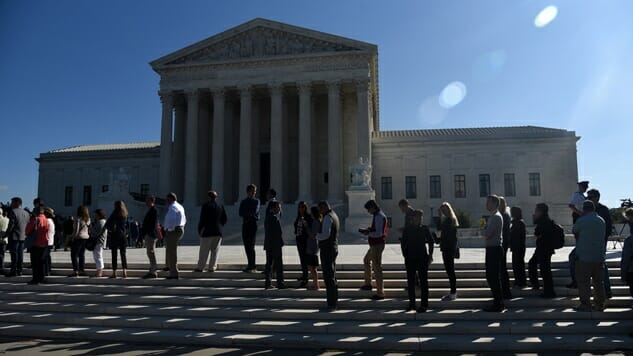Supreme Court Blocks Order Designed to End Gerrymandering in North Carolina
Photo by Olivier Douliery/Getty Images
The controversial North Carolina congressional map that was struck down by federal judges last week was given extended life on Thursday thanks to the U.S. Supreme Court. In an expected move, the Supreme Court temporarily blocked the court order requiring North Carolina lawmakers to revise the state’s congressional voting map. The decision likely means that the map heavily favoring Republican candidates will be used in midterm elections later this year.
Justices Ruth Bader Ginsburg and Sonia Sotomayor filed dissents to the ruling.
-

-

-

-

-

-

-

-

-

-

-

-

-

-

-

-

-

-

-

-

-

-

-

-

-

-

-

-

-

-

-

-

-

-

-

-

-

-

-

-








































